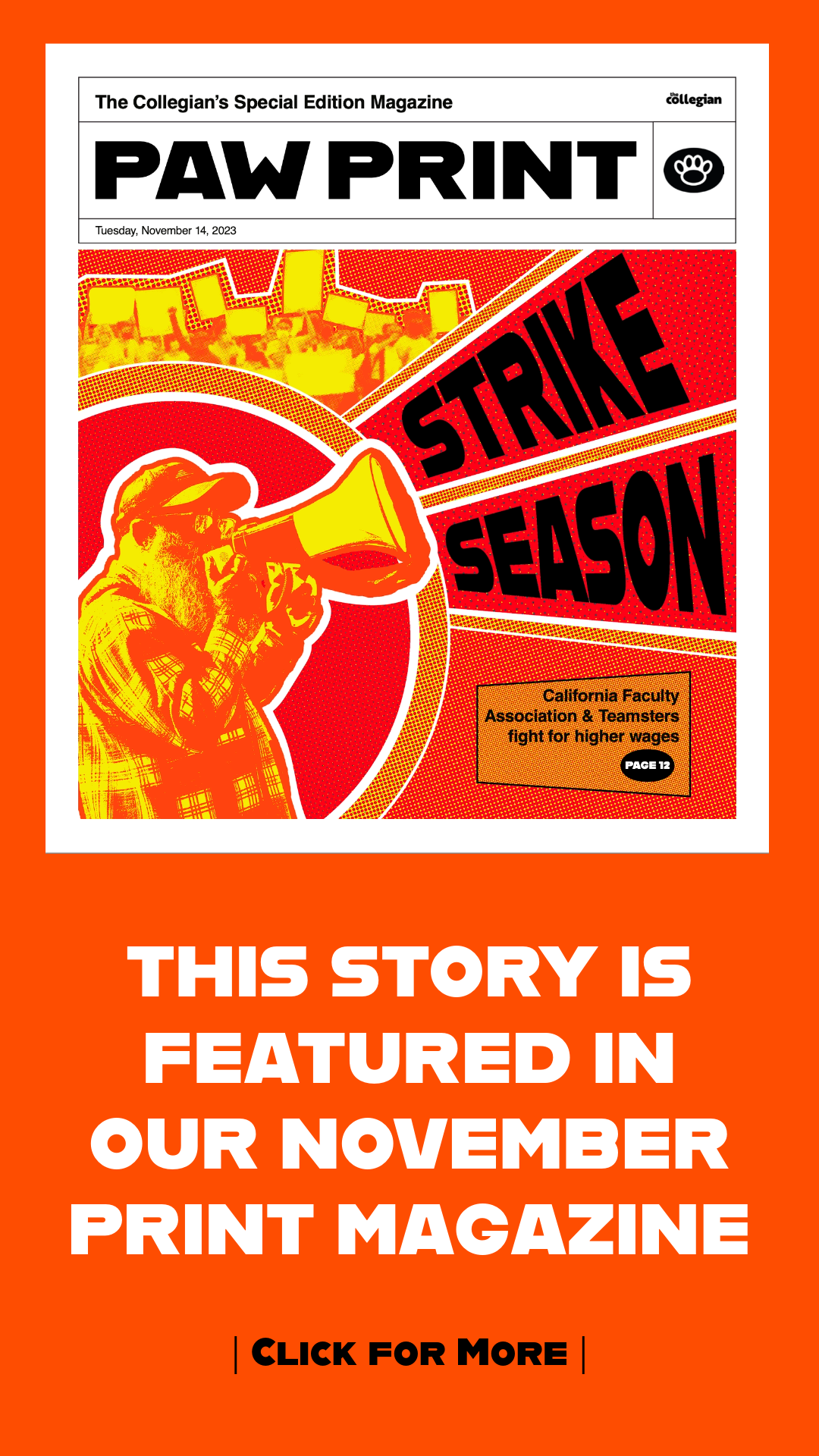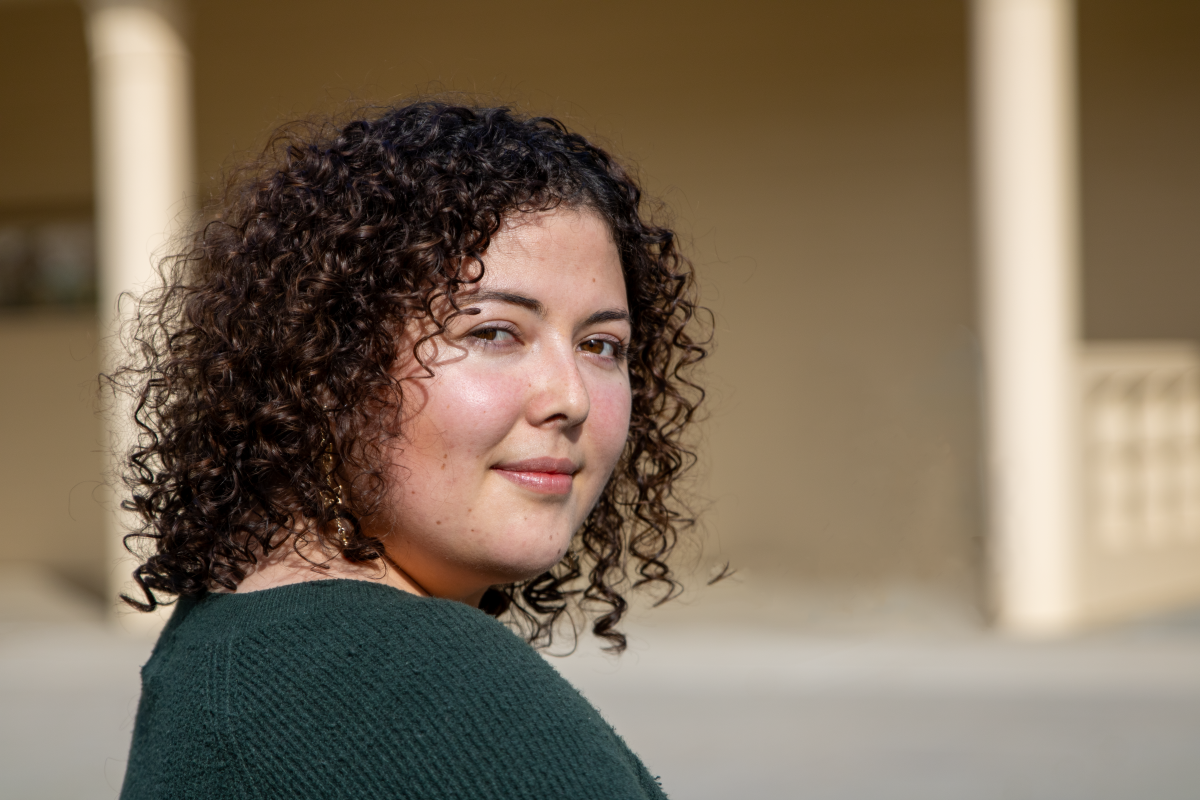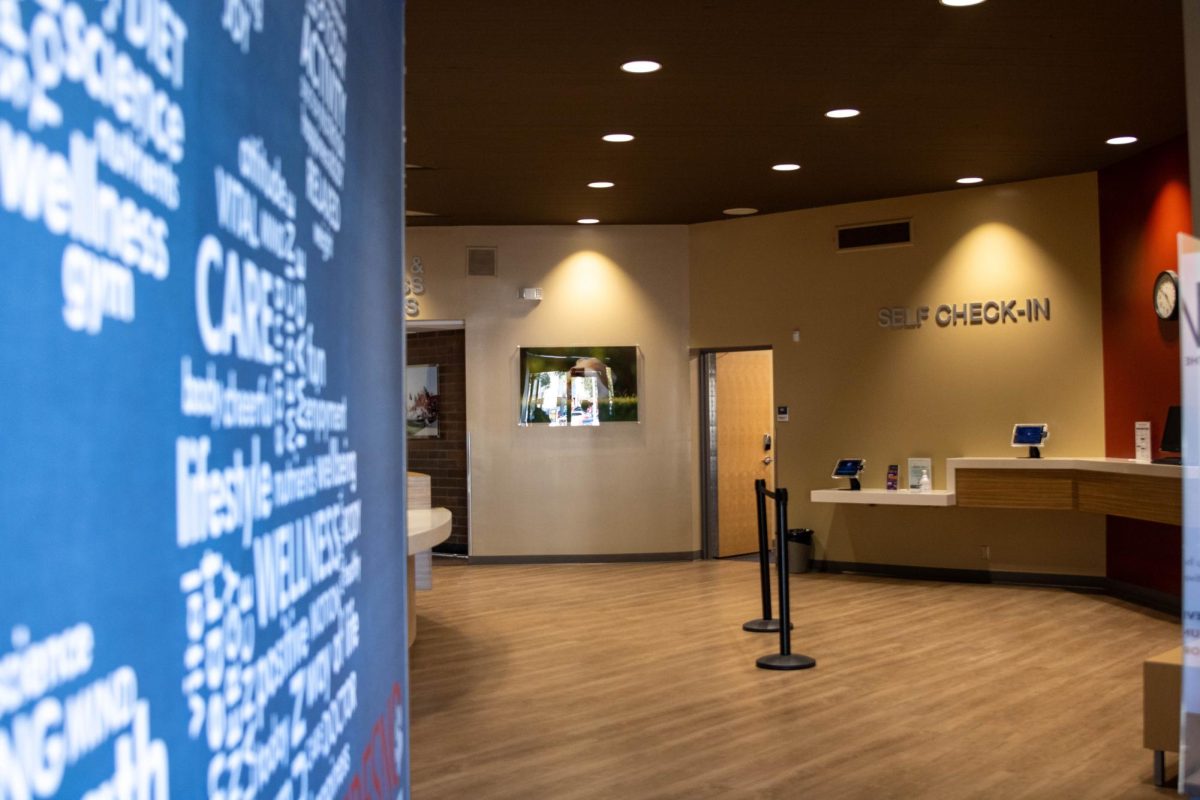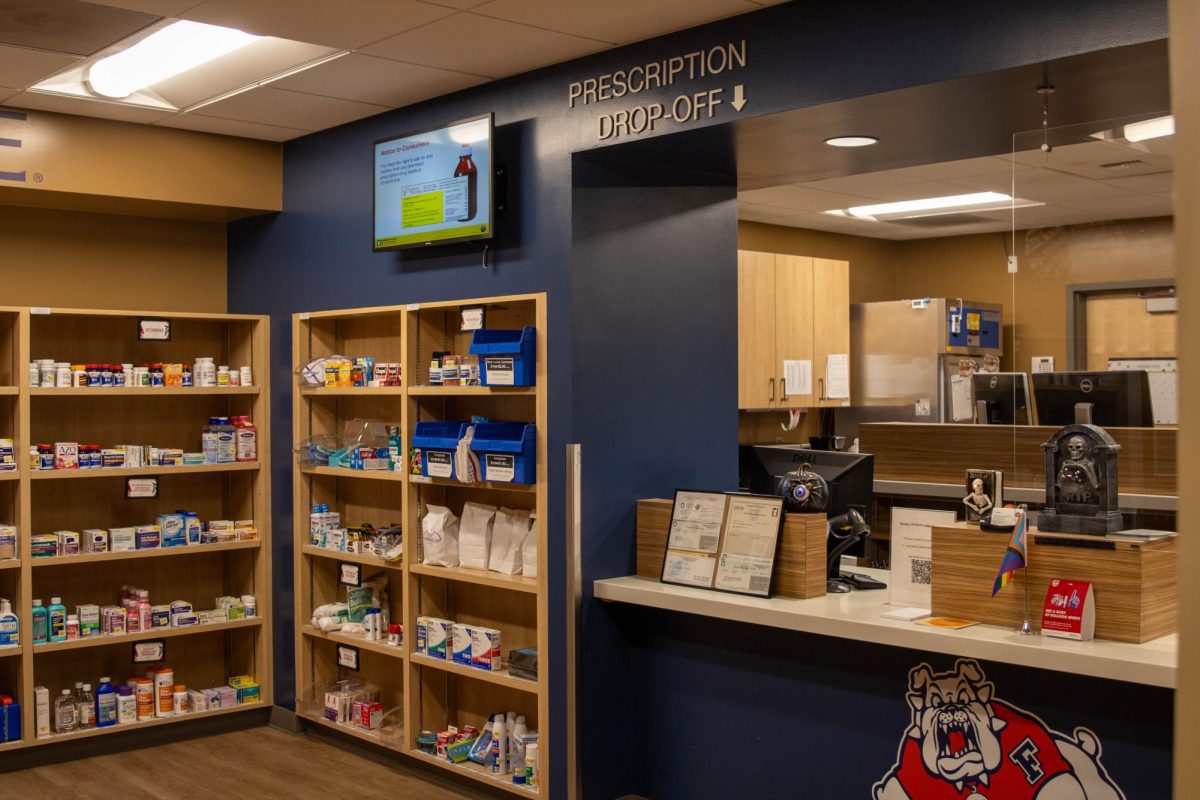Mercedez Espino gave up on seeking help for her mental health because of a poor experience with the counseling services at San Jose State University during the pandemic.
Espino felt like she needed more support and the only people available were student counselors-in-training.
 “I felt like I kept info-dumping my own story and I was like, ‘When are we going to get to the part where we unpack all of this,’ so that was not the best experience,” Espino told The Collegian.
“I felt like I kept info-dumping my own story and I was like, ‘When are we going to get to the part where we unpack all of this,’ so that was not the best experience,” Espino told The Collegian.
Now as a graduate student at Fresno State, she knew it was going to be difficult at first to seek help. Espino hopped around from different counselors because she wanted to find one that she really liked and eventually did.
She’s been able to talk with professional counselors and take advantage of group therapy.
“Every semester since, I’ve had the same counselor and every semester we set up goals of what I want to face doing,” Espino said. “I remember one of my first ones was getting more comfortable with my queerness and feeling like I didn’t have to hide myself.”
Espino has benefitted from the help of the Student Health and Counseling Center, but said more can be done to improve the student experience. Her concerns reflect those of many students across the country after returning to face-to-face instruction after COVID.
There aren’t enough counselors; the counseling space is small and isn’t welcoming; and there could be more to help the LGBTQ+ community.
A meta-analysis of 27 studies showed that the prevalence of depression (39%) or anxiety (36%) increased among college students during the COVID-19 pandemic, according to a study published on Frontiers.
As the first installment of an ongoing project, The Collegian will be seeking solutions to some of the challenges surrounding mental health on campus. Do we have enough counselors? Are there cultural barriers that prevent students from seeking help? Are there specific challenges the LGBTQ+ community faces?
Espino’s introduction to counseling
The Salinas native is in her second year of completing a MFA degree in creative writing with a concentration in fiction writing. The 27-year-old said she has always struggled with being comfortable in her own skin.
Espino always knew she wanted to try therapy but didn’t know where to start until she attended a workshop presented by the SHCC during her first semester at Fresno State. The workshop presented SHCC services and introduced students to a few of the counselors.
“I come from a very conservative household, so being myself was not an option,” she said. “Even here, I still felt afraid.”
Last fall semester, she met with a counselor every two weeks and was also introduced to group therapy, attending group therapy every Friday.
Although she currently lives three hours away from her hometown, she still found it difficult to overcome her fear of accepting help and reconciling with who she is.
“I feel like when I go back home, therapy is something other people do,” she said. “But walking around campus, I feel like it’s not that way at all. We’re [the Fresno State community] very open about that.”
The sense of community from group therapy has immensely helped her because of how inspiring, heart-warming and relieving it is to be around people who are also going through their own struggles, but who also want to get better and learn better coping mechanisms.
How the SHCC can improve
However, as a student who regularly uses the SHCC services, she mentioned that a few things could be improved.
“We don’t have enough counselors, and there’s not enough space there. Those waiting rooms are so tiny,” Espino said. “I feel we can do more to make the space more welcoming.”
Espino acknowledged that the SHCC offers amenities like free KISS kits, and snacks on some days for students to take, but there’s more the university can do to create a safer space for students seeking mental health treatment.
“Walking into the Student Health and Counseling Center was intimidating. It was very sterile and it smelled like a hospital to me,” she said. “So definitely not very welcoming. It didn’t have that comforting aura of ‘Come in. Come inside.’ You walk in and those three people sitting there just kind of look at you… but because I’ve been there so many times, it just feels like another place.”
The counseling center currently has 11 full-time and two part-time counselors. In addition to anywhere between three to seven master or doctoral graduate student interns during the academic year.
Espino also added there could be more to help the LGBTQ+ community.
“There’s not enough counselors that represent or look like us,” Espino said.
The California Faculty Association also shares the same sentiment and is currently lobbying with the California State University system for one full-time counselor for every 1,000-1,500 students, among other demands. If the two parties do not come to an agreement, CFA will strike in December.
Diane Blair, Fresno State communication professor and statewide CFA secretary, said one of the reasons CFA is lobbying for more counselors is because the International Accreditation of Counseling Services recommends maintaining that ratio of students to counselors in order to prevent students from not seeking mental health help, increasing retention and to be able to provide services to students with increasingly severe psychological issues that impact their academic success.
“When there are insufficient counselors on our campuses, instructional faculty are frequently the ones students turn to for help. And faculty want to be helpful,” Blair said. “Unfortunately, as much as faculty may want to be there for their students, they are not trained to provide the mental health care students need.”
When Espino was experiencing a rough patch last semester, she said she ran into this issue.
“With the one [counselor] I see, she’s booked. Unless it’s an emergency, they’ll make sure, ‘If you need to see us consistently, we’ll make that happen’,” Espino said. “It’s only every two weeks now or even just once a month because they’re so booked. They get filled up so fast.”
Whitney Rodriguez, Fresno State counselor, said she feels she has all the tools she needs to complete her job as a licensed clinician and does not have any concerns regarding addressing student mental health.
“I do not have any concerns. Providers that work within the counseling department are passionate about supporting students and offering care,” Rodriguez said.
However, coming out of COVID-19, Rodriguez said she has noticed an increase in the need for mental health support among the students and community.
Zenaida Cruz, interim director of Counseling and Psychological Services, agreed with Rodriguez that COVID-19 has affected student mental health.
“Increased anxiety, depression and stress along with a decrease in social skills, coping skills and/or self-esteem,” Cruz said in an email through Lisa Bell, public information officer for University Communications at Fresno State.
Blair said more counselors would improve student access to mental health services and ease counselor workload.
“When our counseling departments are insufficiently staffed, that creates a work environment that increases undue stress, exhaustion and burn out for our counselors,” Blair said. “Our counselors enjoy their work and want to provide quality health services to our students, but they need the resources to do so.”
Increase in demand for care and battling stigma
By her second semester at Fresno State, Espino had to transition to weekly meetings with her counselor on top of group therapy because of a mental breakdown. Her counselor let her call her if she needed extra support, and she began seeing a campus psychiatrist to receive anxiety medication.
“Depending on the time of year, it can be challenging to have counseling appointments available at the exact time a student has requested,” Janell Morillo, associate vice president for Student Health, Counseling and Wellness, said. “We understand students have busy schedules to balance, and we do our best to accommodate their needs.”
The SHCC provides a variety of mental health services, including crisis services and after-hours medical advice or counseling is also available 24/7 by calling the main line of the Student Health and Counseling Center.
Espino works as an instructional student assistant at University Library, working closely with Ginny Barnes, a student success librarian and co-coordinator for research services. Barnes described Espino as organized, pragmatic, creative and energetic.
“I have only known Mercedez since she has lived in Fresno, and the entire time she has been a delight,” Barnes said. “She communicated with me when she needed to take some time off work for mental health, but her work performance has always been exceptional.”
In counseling, Espino dissected childhood trauma, generational trauma, relationships and moments that changed her life in a negative way, making it really hard for her to confront those things in addition to her academic and social life.
“When we (the Latinx community) talk about mental health in our families, there’s just that huge stigma,” Espino said. “We just need to break down that stigma. How? I have no idea, because that’s generations [and] generations of indoctrination of believing that mental health is hocus pocus.”
Mental Health America reported there is a perception among the older Latinx/Hispanic community that disclosing mental health problems creates embarrassment and family shame, citing that 56.8% of 18 to 25-year-old adults with serious mental health issues did not seek treatment in 2018.
Now, Espino said her mental health and coping mechanisms have completely evolved due to her time participating in counseling and group therapy. This semester she is focusing on improving her relationships.
Her counselor has helped her get more in touch with resources on campus like The Amendola Family Student Cupboard, the SHCC Pharmacy, Let’s Talk, Services for Students with Disabilities Office and the SHCC medical services.
“Mercedez shared with me a poem she composed inspired by her participation in group counseling at the SHCC. She read it to me while we were in a boba shop and it brought me to tears,” Barnes said. “Her words demonstrated to me a place of empowerment she had reached in her healing journey through art and community.”
This semester she is back to once or twice a month counseling sessions, but feels like she gets more out of group therapy. Espino said she is glad she’s been able to receive the help she’s been needing while simultaneously learning more about the services on campus.
“Take advantage of it [the SHCC]. You’re paying so much for your tuition, and that’s the one thing that blows my mind,” Espino said. “I think it’s just a personal preference on how we choose to look at therapy, which I think is a great thing.”
Espino hopes that among students the stigma surrounding mental health can be minimized by trying it at least once.
“It’s definitely not like in the movies where you lay on a couch and it’s ‘OK tell me how you feel,’” she said. “Everyone, at some point, should go to therapy. That is my personal belief, though. Just because we can all learn better tools on how to cope with our emotions.”
After Espino graduates from Fresno State, she is considering going back to school for a second master’s degree in Library Science, saying how working with Barnes has inspired her. Espino fell in love with librarianship, specifically archival studies and all the resources libraries offer, and wants to pursue writing on the side.
She plans to continue counseling up until the end of her career at Fresno State. She wants to be more confident in knowing what she wants, how she feels and to be able to check in with herself.
“All these skills that I’m gaining are not for me to magically change somebody else’s life, it’s for me… feeling more proactive in my own life and using my skills for me and not being selfish about it,” Espino said.
Students can make an appointment at the SHCC by calling (559) 278-2734, scheduling one through the student health portal or by walking in and speaking with a receptionist.






